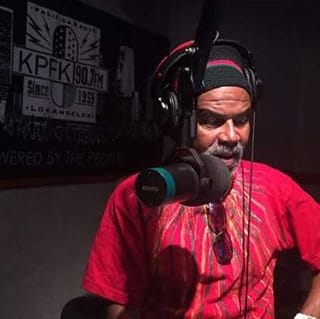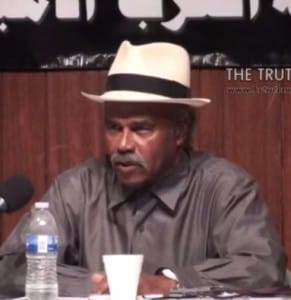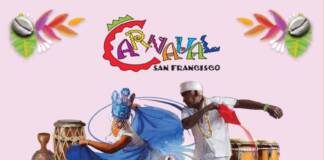by The People’s Minister of Information JR
I have known Dedon Kamathi of the All-African People’s Revolutionary Party for almost 20 years. I met him and his comrade Munyiga Lumumba while I was a student at San Francisco State University and they were the political mentors of the Pan-African Student Union.
They introduced me to Pan-Africanism and to the work of giants like Kwame Nkrumah, Sekou Ture, Amilicar Cabral, Muammar Qaddafi, Patrice Lumumba, Samora Machel, Julius Nyerere, Nnandi Azikiwe, Winnie Mandela and others. They taught me about scientific socialism that was not a Marxist Leninist construct. They taught me a lot about the liberation movements and revolutionary leadership on the African continent. They helped to give me a revolutionary world view.

I respected Dedon because, in Los Angeles where he lived, he fought in the struggle to free Black Panther political prisoner Geronimo Ji Jaga along with many others in the international campaign, and he was freed. Dedon also participated in the Crack the CIA campaign, which was all about exposing the U.S. government’s participation in importing drugs into Black communities in California to fund counter-revolutions against the FMLN in El Salvador and the FSLN in Nicaragua. I learned a hell of a lot from him at this time.
Dedon was also a radio broadcast journalist at Los Angeles’ KPFK who was known for putting together the most Pan-African radio show in Southern Cali. He gave a voice to freedom fighters from all over the world, including places like West Papua New Guinea, the Congo, Haiti and Syria. He always maintained a line against white supremacy, capitalism, Zionism and imperialism.
He also worked on an international level alongside the international peace activist Cynthia McKinney. When the African world revolution lost Dedon Kamathi, we lost an organizer’s organizer, a void that will definitely be very hard to fill.
Dedon was also a radio broadcast journalist at Los Angeles’ KPFK who was known for putting together the most Pan-African radio show in Southern Cali. He gave a voice to freedom fighters from all over the world.
I talked to one of Dedon’s close comrades in the All-African People’s Revolutionary Party, Munyiga Lumumba, so that he could give the people who didn’t know Dedon like we did a glimpse into the politics and the spirit that made Dedon Dedon. Check him out in this exclusive Q&A.
M.O.I. JR: Can you tell me how you got involved with the All-African People’s Revolutionary Party? When and where?
Munyiga: As a high school student at McClymonds High School in West Oakland, I participated in support work for a number of community organizations, including the Black Panther Party and the Nation of Islam. Like many African youth around the world, I had an early introduction to political activism and organization.
When I graduated high school and began college, I was already conditioned to organized resistance and fighting for justice. It was at the University of California, Berkeley, where I was recruited by the All-African People’s Revolutionary Party, which was executing its program of building the party through the organization of the “spark” of the African revolution, African students. Dedon was instrumental in introducing me to the A-APRP.
M.O.I. JR: How and when did you meet Dedon?
Munyiga: I believe that I met Dedon around the fall of 1974. I was working with the Black Board, an umbrella organization of African student groups on the Berkeley campus. One of our projects was building a statewide organization of African student unions from around the state of California.
There was a core group of serious student organizers that this formation produced. Dedon was organizing primarily in Southern California and I was organizing with folks in Northern California.
We would have statewide meetings periodically where the entire state network met. While our initial work was in the building of this statewide student organization, the focus soon turned to doing the work of building a mass, revolutionary Pan-Africanist political party that would be permanent, the A-APRP.
M.O.I. JR: Why was Dedon a Pan-Africanist? Who were some of the Pan-Africanists who inspired you both?

Munyiga: Pan-Africanism is the total liberation and unification of Africa under scientific socialism. This is the true objective of the African revolution. Dedon was committed to this objective as he grew to understand the conditions of Africa and the world.
He had a burning desire to change those conditions and, in recognizing the necessity for organization, he was compelled to follow the revolutionary path to Pan-Africanism. The evidence of this desire is found in his political work.
Pan-Africanism is influenced by many serious, hardworking, dedicated thinking women and men. The ideology of the African Revolution and thus the A-APRP is Nkrumahism-Tureism. This ideology is the product of the intellectual labor of the masses of African people engaged in the process of resisting exploitation and fighting for dignity, power and freedom.
Kwame Nkrumah, Sekou Ture, Marcus Garvey, Shirley Graham and W.E.B. DuBois, Kwame Ture are the names that are most commonly associated with Pan-Africanism. These revolutionary immortals along with the courageous masses of African people serve as my inspiration.
I cannot speak for my Brother Dedon but simply suggest that his words and his work be examined, and I am certain that the answer to his inspiration can be determined.
M.O.I. JR: Dedon always felt that students were a key factor to the revolution. Why?
Munyiga: The science of revolution identifies specific roles, relationships and responsibilities of the various sectors in society to the revolutionary process. Historical fact provides the evidentiary basis proving that students serve as the “spark” to social and political revolution.
The assertion is that the student sector – determined, conscious and organized – can serve to ignite revolutionary motion. Nothing more, nothing less. The A-APRP, after a vicious struggle within the revolutionary and progressive movement, emerged with this strategy as its priority in the party building process.
It is a stage within the revolutionary process. It is not the revolution. Dedon understood this and dedicated the majority of his political life to organizing students.
Historical fact provides the evidentiary basis proving that students serve as the “spark” to social and political revolution.
M.O.I. JR: How do you think Dedon would want to be remembered?
Munyiga: Not certain what he would want as we never had that complete discussion. I will remember him with a greater appreciation of the human spirit.
Dedon came into this world, like all of us, owing a debt. He spent the majority of his life attempting to repay that debt. In this I will remember him for being gracious, tireless and committed.
The People’s Minister of Information JR Valrey is associate editor of the Bay View, author of “Block Reportin’” and “Unfinished Business: Block Reportin’ 2” and filmmaker of “Operation Small Axe” and “Block Reportin’ 101,” available, along with many more interviews, at www.blockreportradio.com. He can be reached at blockreportradio@gmail.com.





